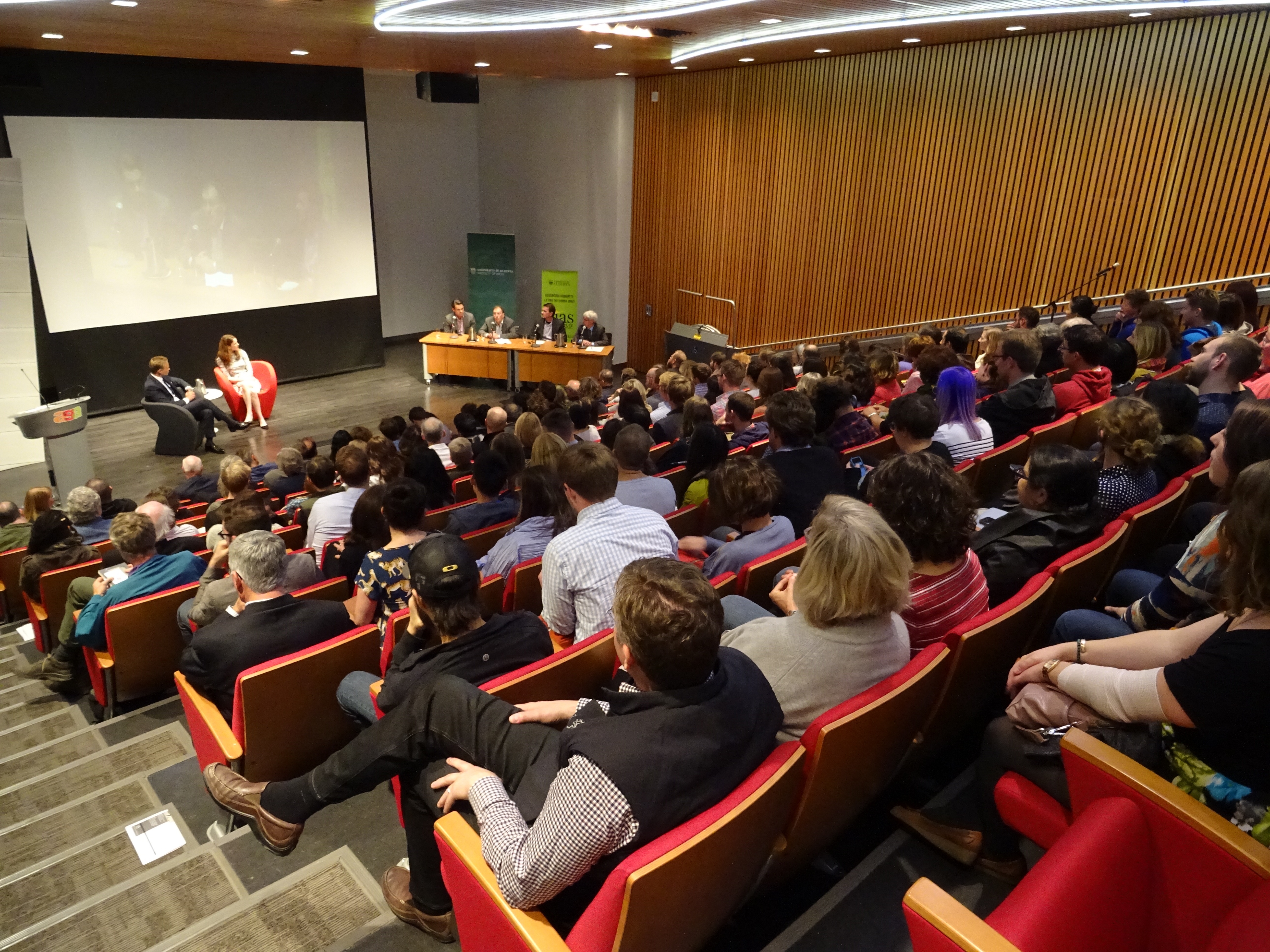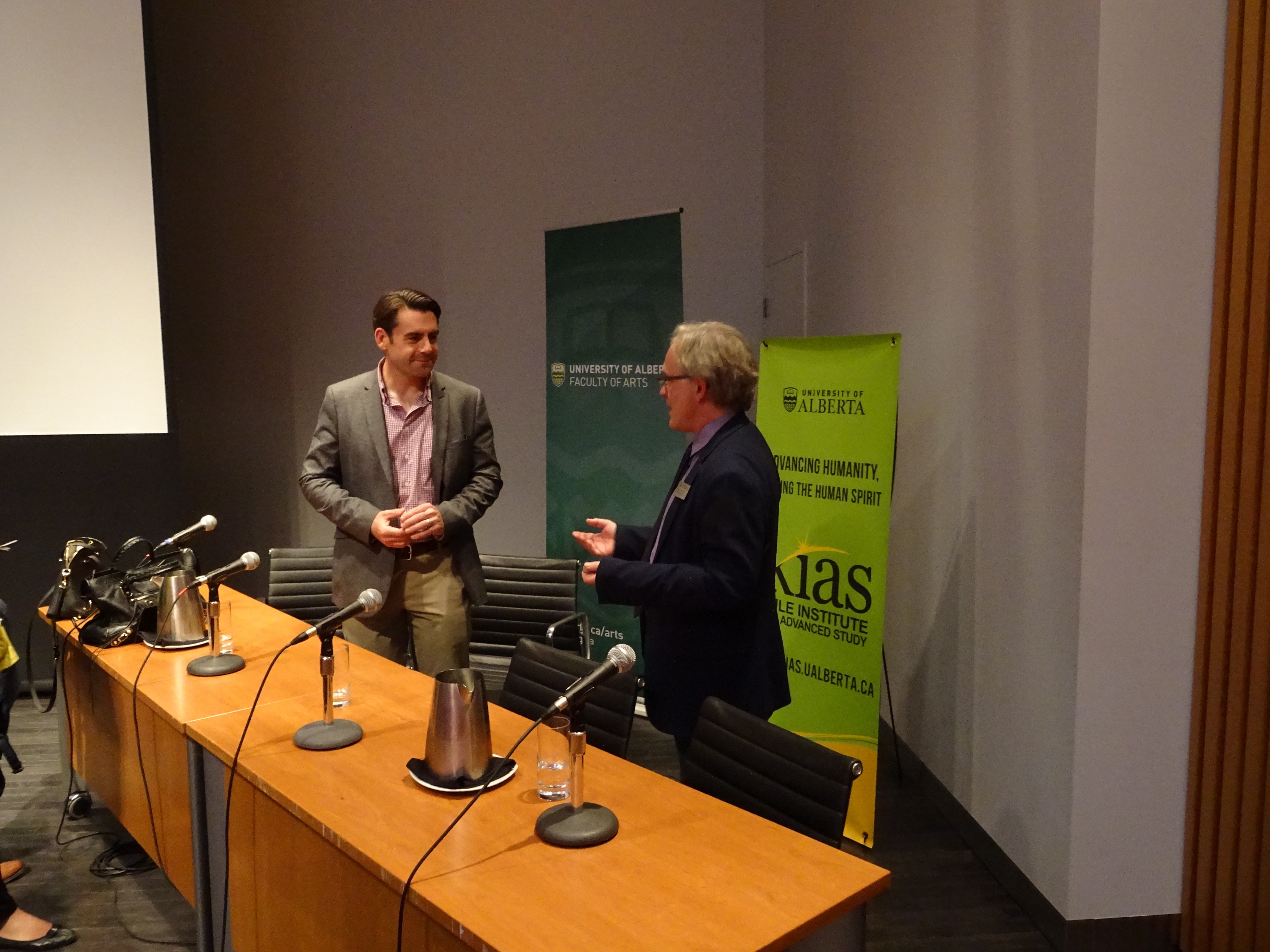(Original published at After Oil Article and Video on Arts Website)
What comes after oil in Alberta? What would a post-fossil fuel future look like? Would we have to dramatically re-design cities, homes and transportation systems? And how can we shift our outlook now, to be ready for when those changes come? These were just a few of the many difficult questions explored during the After Oil public roundtable held at the Art Gallery of Alberta on August 21.
Over 200 people packed the AGA for this discussion, which was expertly moderated by Todd Hirsch, Chief Economist (ATB Financial). Guest speaker Dr. Jennifer Jacquet (Environmental Studies, New York University) challenged the audience to think about the nuances of using shame as a tool, and suggested that shaming corporations might be a way to make environmental change more possible.
Dr. Imre Szeman, Canada Research Chair in Cultural Studies, described the importance of taking ownership of the rules of social structures related to petrocultures. Dr. Trevor Harrison, Director of the Parkland Institute, encouraged the audience to imagine redefining globalization and economic diversification. Panelist Simon O'Byrne, Vice President of Stantec's Urban Planning, invited discussion about changing education systems to create engaged citizens and entrepreneurs. Eddy Isaacs (Chief Executive Officer, Alberta Innovates - Energy and Environment Solutions) urged the audience to recognize that energy literacy is a huge factor in our democracy.

The success of roundtable demonstrated that the Faculty of Arts, and UAlberta as a whole, can provide vital research leadership on these critical topics. The full event video, linked here, shows the presentation by Jacquet and her fellow After Oil panellists, followed by a Q & A with members of the audience.
The After Oil public roundtable was part of a larger After Oil School, which saw academics from around the world come together at the University of Alberta from August 19 to 22 to research and discuss the economic, political and sociological impacts of transitioning to life after oil. Out of the conference, researchers will produce a policy brief and research paper, both of which will be available to media and the public on the After Oil website in the coming weeks.
Scroll through the After Oil Storify linked on the right to read Tweets from our panellists, audience members and After Oil school participants.